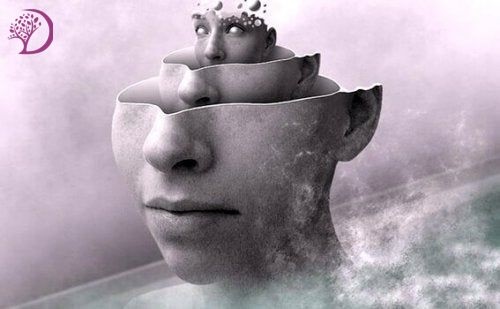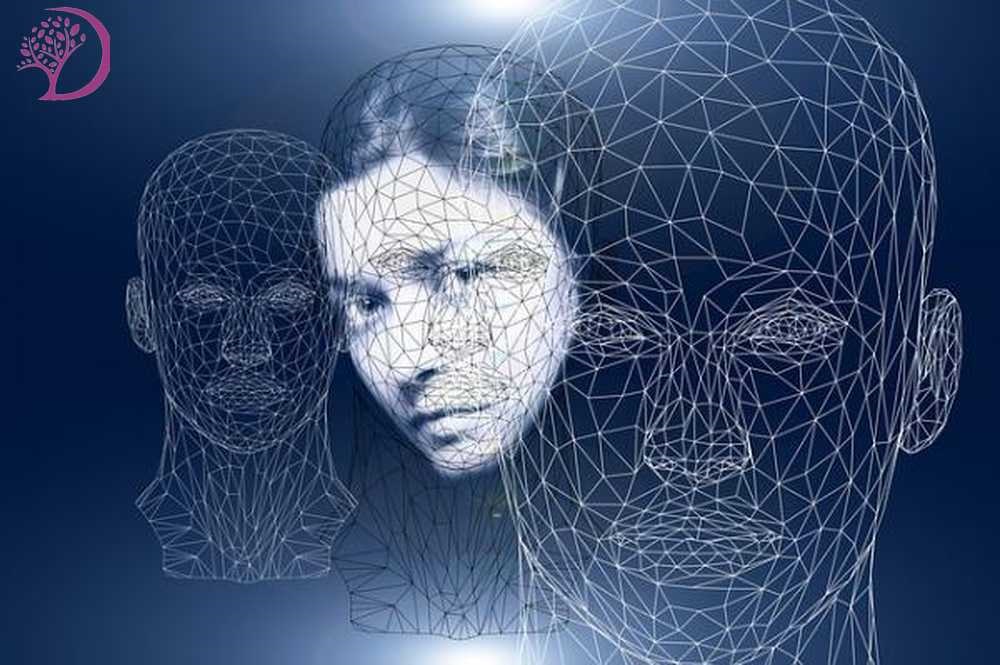The relationship of dreams to the psychological state, many wonder and from here we explain to you: Dreams are a window to the subconscious mind and an expression of thoughts, feelings and emotional experiences that a person may be unable to express in daily life, the content of dreams is affected by a range of psychological and emotional factors, such as daily stressors, personal experiences, social relationships, and mental challenges, in addition to that, dreams may reflect anxiety or psychological pressure that the individual suffers from, and may be a way to address those pressures and negative feelings, and in some Sometimes dreams appear as a way to express personal wishes and goals, and provide an opportunity to explore oneself and understand oneself more deeply, and here the question arises: Do dreams have anything to do with the psychological state?
How do dreams happen?
Dreams are mental experiences that occur during sleep, as they include thoughts, desires and conflicts inherent in the subconscious mind, and dreams are considered a recall to some events that we experienced during the day, or thoughts and topics that occupy our minds just before bedtime, and dreams usually express repressed desires, aspirations and wishes that cannot be achieved in reality, sleep provides the opportunity for the individual to express these things, which helps him achieve psychological satisfaction that he cannot achieve during wakefulness.
From a psychological point of view: Dreams are an essential element in mental health, and reflect a balanced mental health state, and dreams may be a source of concern for people with mental disorders such as anxiety, depression and schizophrenia, for example, anxiety and depression patients suffer from disturbing nightmares during sleep, which negatively affects their sleep and psychological state, and in the case of patients with schizophrenia, dreams may be full of ghosts and frightening sounds that also bother them in the waking state.
Dreams and the future
No one can predict the future except Allah SWT, but the question of the relationship between dreams and future events remains open, the source of this inquiry may be the existence of many cases where people narrate their experiences that the dreams they have witnessed come true in reality later.
It turns out that there are different explanations for this phenomenon, which are still controversial, although scientific research shows that there is an interaction between the human mind and the surrounding environment, where man is affected by public events and reflects them in his dreams.
Many ask for an interpretation of their dreams to understand the meanings of events, people and symbols they see, and how they relate to their psychological state or life in general, and it must be borne in mind that dreams can be intense experiences of time and space, where a person can dream of long-term events in a few minutes of sleep.

Are dreams useful?
It should be noted that dreams are an essential stage of sleep, and it is medically clear that brain activity during the rapid eye movement (REM) phase, which is the stage in which most dreams occur, becomes more active than it is during wakefulness.
Adults spend 15 to 25 percent of their sleep time at this stage, while infants spend about 50 percent of their sleep there.
Theories and hypotheses about the importance of dreams vary, from those who believe that they are important for brain health, as some suggest that newborns spend half their sleep in the REM stage to develop and strengthen brain tissue.
There are those who believe that the dream stage plays a role in enhancing memory and concentration, and a study indicated that students who did not reach this stage witnessed a decline in their performance, while others believe that dreams contribute to the organization and processing of feelings and emotions, which positively affects the state of awakening.
However, there is no strong evidence to support these assumptions, and this topic remains the subject of continuous study and research, and there is another theory that suggests the importance of dreams for regulating brain temperature, as the brain heats up during the dream stage.
Read more about: How do I know that a dream is a message from God.
Are there diseases or organic disorders that accompany dreams?
Dreams are an essential stage of sleep, and may be accompanied by some disorders such as “sleep paralysis” and others, before addressing these disorders, we must clarify the mechanism of dreams to enable the reader to understand them.
Long dreams usually occur during the rapid eye movement (REM) phase, and God Almighty has created a mechanism to protect us during sleep, this mechanism is known as “muscle relaxation”, and this mechanism means that all the muscles of the body become paralyzed during the dream stage, except for the diaphragm muscle and the muscles of the eyes, and even if a person dreams that he is doing a great muscular effort, the muscle relaxation mechanism ensures that he stays in his bed.
This mechanism ends as soon as you move to another stage of sleep or wake up, but sometimes a person can wake up during the REM stage and find himself unable to move, with a sense of full awareness and the ability to observe events around him, and this condition is known as sleep paralysis.
Although it is a benign condition and does not lead to death, it can provoke terrifying hallucinations and a sense of anxiety, and in most cases sleep paralysis does not require medical treatment, but in some cases it is accompanied by another disorder known as sleepiness or narcolepsy, which requires medical treatment and continuous follow-up with your specialist.
In contrast to sleep paralysis, there is a rare disorder that affects the elderly with central neurological diseases, such as Parkinson’s disease, and this disease is known as behavioral disorders associated with the dream stage, and in this disorder the paralysis mechanism that usually occurs in the dream stage disappears, which makes the patient able to carry out the movements he does in his dreams, and this may lead to injury to the patient or those who sleep next to him as a result of uncontrolled movements.
Depression and its relationship to dreams

Patients with depression usually talk about dreams associated with negative mood, which include events full of failures and misfortunes in addition to elements that express death, especially for those who suffer from suicidal thoughts or behaviors, and generally the depressed patient plays a relatively negative role in dreams, as his dreams include part of the strangeness or separation from reality.
It is often difficult for the patient to remember the exact details of the dreams they see, as one study showed that depressed patients were unable to regain their memory of dreams in the 5 minutes they woke up after the period of sleep with rapid eye movement, which is the optimal period for remembering dreams, and this indicates the superficiality of dreams in people with depression.
Schizophrenia and its relationship to dreams
The dreams of schizophrenia patients carry high levels of anxiety, negative feelings and hostility, as they see more nightmares than healthy people, in addition to the appearance of a larger number of strangers and unfamiliar characters in their dreams, and often the owner of the dream is not the main character, which reflects the persecutory illusions that schizophrenia patients suffer from in their wakefulness.
Personality disorder
Regarding personality disorder, sufferers experience more negative dreams and stress during the dream and after waking up, and some researchers attribute the possibility that chronic nightmares are associated with negative experiences and traumas during childhood, which can lead to the onset of personality disorder.
According to one study, people with personality disorders and shortness of breath exhibit more modest and slightly aggressive behavior in their dreams, have higher levels of anaphylaxis, and have nightmares that they see include stress and anxiety that are actually commensurate with stress levels.
Read more about: Interpretation of seeing the sky in a dream.
Are these dreams useful for patients with mental illnesses?
Michelle Carr pointed out in her article that dream pattern can be a contributing factor in estimating an individual’s psychological state, for example: Dreams filled with death in depressed patients can indicate the importance of addressing suicidal thoughts. When positive elements appear in the dream, it may reflect the success of the treatment followed.
For example, having dreams of death in people with depression explains the importance of treating a person’s suicidal thoughts, and when dreams include positive elements, it may reflect the success of the treatment followed.
What does dreams have to do with the psychological state?
It can be said that the content of dreams is greatly influenced by the psychological state of the individual, as dreams can reflect their experiences and inner feelings.
For example, if someone dreams that they are fighting with a friend or spouse in the dream, it may be a sign that there are problems in their personal relationships with others, whether they are with friends or a romantic partner.
Specialists consider that dreams reflect the issues that concern a person and affect his mood before bedtime significantly, dreams have contributed to helping many people overcome the negative emotional effects of divorces, and they also see that not remembering dreams during sleep can be more dangerous than sleep disorder itself for the development of depression.
The importance of dreams for mental health

The use of hypnotic drugs and antidepressants may reduce the experience of dreams during sleep, which affects the emotional and psychological balance of the person, and some people prefer to use these drugs to avoid negative dreams or nightmares, but dreams of all kinds are part of the vital activity of the brain, and it is advised not to suppress them, but to deal with them in healthy ways.
Among these healthy ways: ensuring optimal sleep conditions, such as room temperature and light level, the quality of food and drink eaten before bed, and setting sleep hours regularly, in addition, bad dreams can be talked about and discussed with others, which helps reduce the negative emotions associated with them.
Nightmares that appear in the first hours of sleep are usually an expression of the negative feelings that a person can live during the day, and specialists describe dreams as a type of psychological yoga, as it contributes to maintaining the psychological and emotional balance of the individual.
How to control dreams
There are several techniques you can use to help control dreams, here are some of them:
- Promote awareness during sleep: This method is essential for managing dreams, and can also include exercises such as periodically reviewing dreams while awake, and recording details and repetitive patterns in dreams.
- Meditation and relaxation practice: Meditation and relaxation techniques can help achieve awareness and control during sleep, and meditation techniques and deep breathing before bed can be applied to calm the mind and increase awareness.
- Repetition of thinking: Phrases such as “I’m going to dream and be conscious” can be repeated while awake and before bedtime, which may help promote awareness while dreaming.
- Writing down dreams: Writing down dreams on a regular basis may help understand dream patterns and identify signs that indicate that you are in a state of dreaming.
- Mental imaging: Imagine possible scenarios of dreams while waking and depict the way you want to behave in dreams.
- Waking up in dreams self-training: Waking up practice in dreams can be done by repeating the question “Am I in a dream but awake, and this may work as a habit that passes on to dreams.
Discover what your dreams are telling you by reaching out directly to a certified dream interpreter on the Dream app. Download now!




